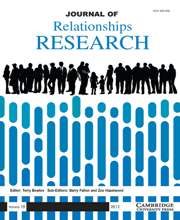Article contents
Development and Psychometric Properties of NEGORI (Negative Orientation Questionnaire)
Published online by Cambridge University Press: 29 April 2018
Abstract
There are several available questionnaires that measure negative problem orientation with one factor. Our aim was to create a multifactor questionnaire that enables a more detailed and reliable analysis of interpersonal problems and one's negative orientation toward their solutions in adolescence. We carried out two data collections during the development of the questionnaire (N2016 = 952, N2017 = 835) among 12-, 15- and 18-year-olds. The tested statements were chosen based on the category system of an earlier pilot research, as well as students’ and professionals’ statements, which were then organised into a factor structure. To analyse convergent and discriminative validity, the Social Problem-Solving Inventory — Revised (SPSI-R; D'Zurilla et al., 2002) was used. Exploratory factor analysis (EFA) and confirmatory factor analysis (CFA) greatly support the theoretical factor structure, and the structural equation model (SEM) also confirmed what had been thought about the system of connections of the latent dimensions. The result of the questionnaire development is the 21-item, six-factor NEGORI (Negative Orientation Questionnaire), which bears good reliability indexes in all age groups and can measure the following aspects within negative orientation: negative self-efficacy; negative consequences; positive consequences; habits, pattern; waiting; fending off the problem. We gained different and more detailed information as compared to previous data related to age and gender.
- Type
- Research Article
- Information
- Copyright
- Copyright © The Author(s) 2018
References
- 2
- Cited by


